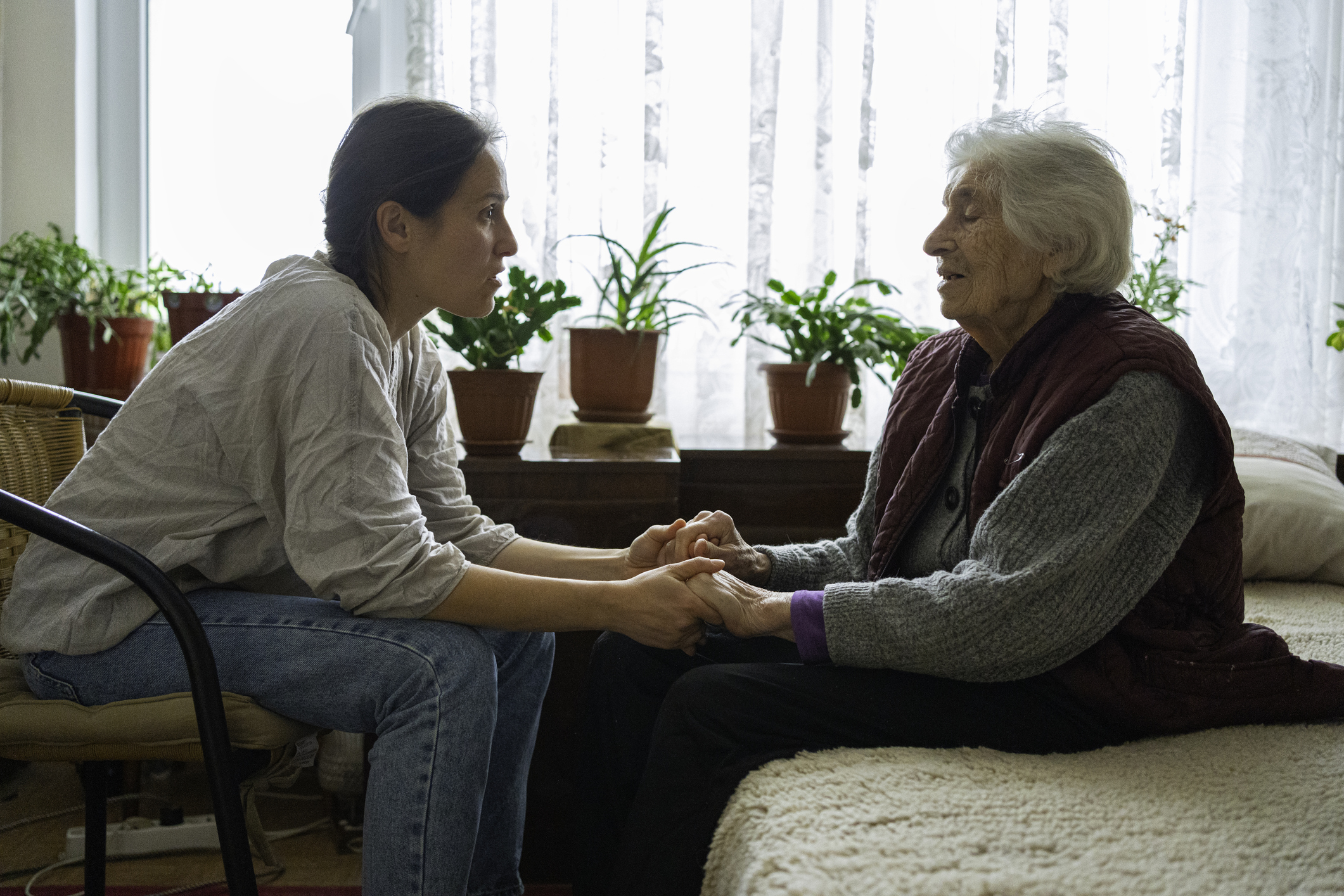4 Min Read
Managing Caregiver Burnout

Caring for a family member can be a rewarding experience, but it can also be challenging. Around 100 million U.S. adults care for a loved one, and around 56% balance caregiving with a full-time job. Depending on the level of care your loved one requires, it’s easy to get burnt out and overwhelmed. Managing caregiver burnout is crucial for both your well-being and the quality of care provided to your loved one.
What is a Caregiver?
A caregiver is a person who cares for someone else who cannot fully care for themselves due to declining health, an injury, or an underlying medical condition like Alzheimer’s disease or other forms of dementia, cancer, Parkinson’s disease, or stroke.
Caregivers help with daily living tasks like bathing, cooking, completing housework, managing finances, shopping, and more.
What is Caregiver Burnout?
Caregiver burnout is a state of physical, emotional, or mental exhaustion from caring for someone else. It can lead to increased levels of stress, worry, anxiety, and feelings of depression. Signs include:
- Anger/frustration toward the person you’re caring for*
- Denial of your loved one’s condition
- Anxiety
- Depression
- Emotional and physical exhaustion
- Lowered immune system (getting sick more often)
- Inability to concentrate
- Irritability and moodiness
- Sleeplessness
- Social withdrawal
Burnout can be caused by many things, including a heavy workload, emotional demands, conflicting responsibilities, unrealistic expectations, and a lack of personal time.
*If you feel you may be hurting the person you care for, seek help immediately. Contact a friend, family member, healthcare provider, social worker, or mental health professional.
Tips for Managing Caregiver Burnout
If you’re feeling overwhelmed, solutions and resources are available.
- Make time for yourself. Taking time to care for yourself can sometimes make you feel selfish, but it is anything but that. Self-care is crucial to enable you to be the best caregiver you can be. Self-care can take different forms for different people, such as watching a movie, going for a run, doing yoga, meditating, taking a bath, hiking, or any other activity that makes you feel refreshed and rejuvenated.
- Talk to your PCP. The stress and emotional weight that comes with caring for a loved one can be overwhelming. Share these feelings with your primary care provider. They can refer you to additional resources, such as a mental health professional or therapist, that can help.
- Nurture your relationships. When juggling countless responsibilities and managing stress, relationships may be overlooked. Make an effort to talk to and spend time with your close friends and family members. It may feel like an addition to your never-ending to-do list, but you’ll be surprised how these social connections can help relieve stress.
- Try stress relievers. Stress can take a toll on your body, increasing the risk of heart disease, heartburn, high blood pressure, and more. Eating healthy, staying active, listening to music, staying connected, and practicing mindfulness are all proven methods for managing stress.
- Ask for help. Many people struggle with asking for help, but it’s essential for caregivers who balance a full plate. Reach out to close loved ones and ask them to take on a few of your responsibilities. It’s more than likely they don’t realize you need help until you ask.
- Consider assisted living or respite care. If you don’t have a close support group that can help share caregiving responsibilities with you, senior living facilities like Grand Oaks are a great option. We offer assisted living, memory care, and respite care options, depending on your loved one’s needs.

0 Comments